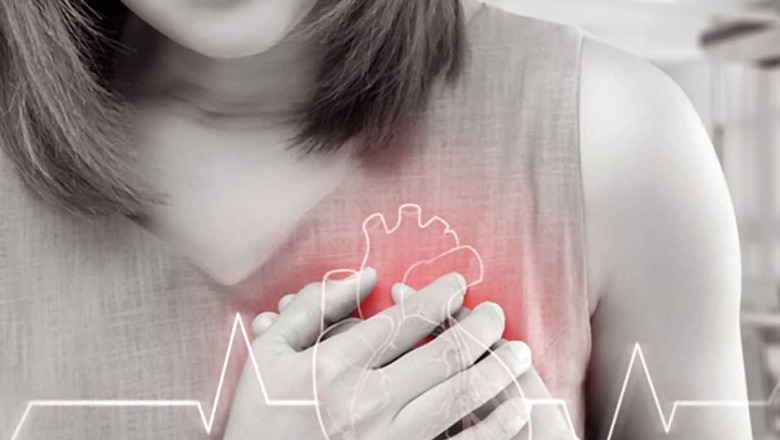
views
Irregular heart rhythms, which is a surrogate of cardiac arrhythmias, can affect individuals of all ages, including young people. While most of the time symptoms may be seemingly benign, they can have significant implications for heart health and overall well-being. Apparently out of each 100 heart patients, you can presume that 40 patients will definitely have some kind of heartbeat problem related to predominantly irregular heartbeat.
Q. What are some of the common causes of Irregular Heart Rhythm?
A. Irregular heart rhythms generally occur due to generation of uncontrolled electrical activity from unusual location resulting in disruptions of the heart’s normal electrical signalling e.g. atrial fibrillation, ventricular arrhythmia etc.In young people, arrhythmias may be caused by various factors, including congenital heart defects, underlying medical conditions, medicine’s side effect,genetic predispositions, lifestyle factors, or even stress and anxiety.
Rhythm disorders can also arise due to non-cardiac issues, such as patients with lung disease or electrolyte imbalances like fluctuations in sodium and potassium levels. Sometimes, very fast regular heart beating which sustain for a short while may also be perceived as irregular. Abnormal isolated electrical activity generated from upper chamber of heart, which is called atrium is relatively non fatal whereas that from lower chamber or ventricle is often dangerous. This can be detected by feeling a drop or missed pulse beat while checking the patient’s pulse.
Q. What are the common symptoms of Irregular Heart Rhythm?
A. Recognizing the signs and symptoms of irregular heart rhythms is crucial for early detection and intervention. Common symptoms in young individuals may include palpitations (sensations of rapid, fluttering, or pounding heartbeat), dizziness or light-headedness, fainting episodes (syncope), chest discomfort, shortness of breath, and fatigue. It’s important to note that some arrhythmias may be asymptomatic or unnoticed making them challenging to diagnose without medical evaluation.
Q. How can Irregular Heart Rhythm be treated?
A. When evaluating a young individual with suspected arrhythmia, healthcare providers may employ various diagnostic tests to assess heart rhythm and function. These may include electrocardiogram (ECG or EKG), Holter monitor (a portable device for continuous heart rhythm monitoring), event recorder (a device worn for longer periods to capture intermittent arrhythmias), echocardiogram (ultrasound imaging of the heart), and in some cases, in cardiac catheterization laboratory by electrophysiology studies.
Another effective way of treating irregular heart rhythms is through an Electrophysiology (EP) Lab which is a specialized facility equipped to perform diagnostic and interventional procedures related to cardiac arrhythmias. In the EP lab, healthcare professionals, typically cardiologists specializing in electrophysiology, use advanced equipment and technology to diagnose and treat various rhythm disorders of the heart. These procedures include electrophysiological studies (EPS), which involve mapping the electrical activity of the heart, as well as therapeutic interventions such as radiofrequency ablation (RFA) to correct abnormal electrical pathways in the heart tissue.
Q. How can Irregular Heart Rhythm be prevented among youngsters?
A. Treatment for irregular heart rhythms in young people depends on the type, severity, and underlying cause of the arrhythmia. In many cases, lifestyle modifications such as stress reduction, regular exercise, maintaining a healthy diet, and avoiding stimulants like caffeine and nicotine may help manage the symptoms. Additionally, medications may be prescribed to control heart rate and rhythm.
Irregular heart rhythms can occur in young people for various reasons and may have significant implications for heart health and overall well-being. Recognizing the signs and symptoms of arrhythmias is essential for early detection and intervention. With advances in diagnostic tools and treatment options, young individuals with irregular heart rhythms can receive appropriate care to manage their condition effectively and lead healthy, fulfilling lives.




















Comments
0 comment